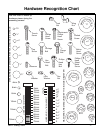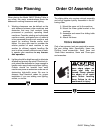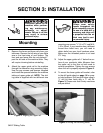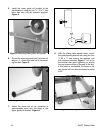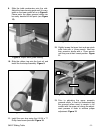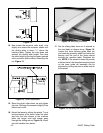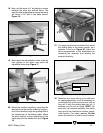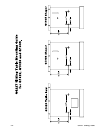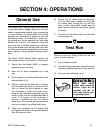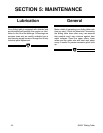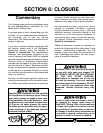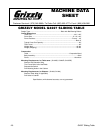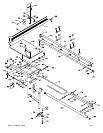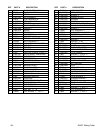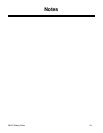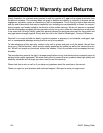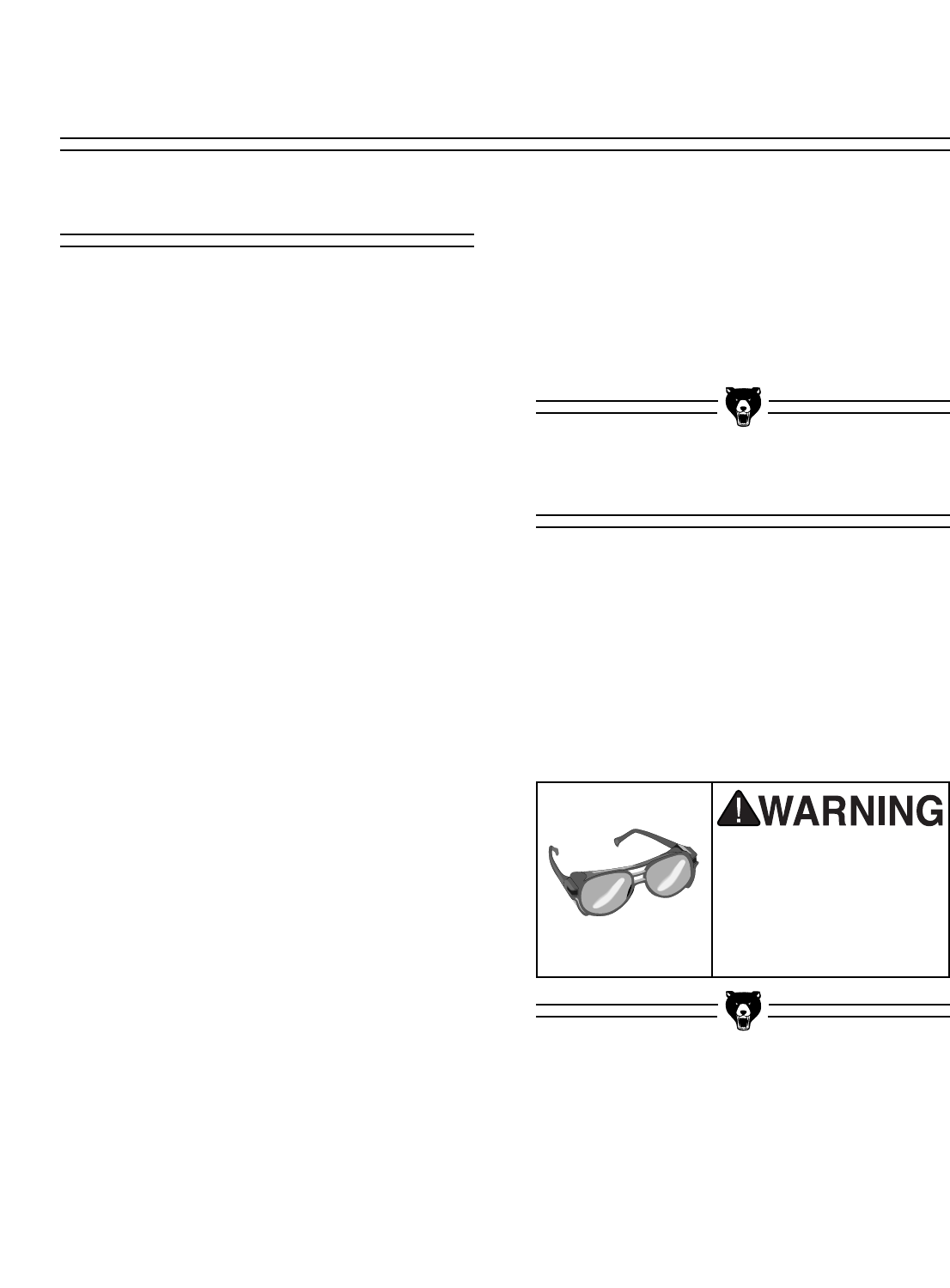
G4227 Sliding Table -15-
The Model G4227 Sliding Table, when attached
to your table saw or shaper, allows you to easily
handle cumbersome material when crosscutting
or cross shaping. The sliding table fence safely
supports your work which is guided on rails and
ball-bearing rollers. The fence has a large bear-
ing surface and can be adjusted from any angle
between 90° and 45°. For repetitive cutting, the
fence also has a variable positioning stop block
that can be flipped out of the way when not need-
ed. The fence can also be adjusted out of the way
when ripping or doing standard shaping opera-
tions.
The Model G4227 Sliding Table replaces the
miter gauge function. To crosscut or cross shape:
1. Ensure that the Model G4227 is properly
adjusted on your machine.
2. Move the rip fence completely out of the
way.
3. Set the angle of the sliding table fence to the
desired angle of cut.
4. Without turning on the table saw or shaper,
slide the table and fence in the direction of
the cut. Adjust the fence toward or away
from the blade or cutter so that your work-
piece will be adequately supported near the
blade or cutter, but will not touch the blade or
cutter. If full support of the workpiece is
desired to minimize tear out, an auxiliary
wood fence that extends out past the fence
can be mounted to the sliding table fence.
5. Place your workpiece on the sliding table
and against the fence at the desired distance
from the blade or cutter.
General Use
Before you put your Sliding Table into use, let’s
give it a quick inspection.
1. Are all fasteners tight?
2. Has the sliding table been adjusted accord-
ing to the guidelines set forth in this manual?
3. Have you read all safety rules?
Test Run
6. Ensure that all safety rules are observed.
Turn the table saw or shaper on and guide
the sliding table through the cut with one
hand on the sliding table handle and the
other hand securing the workpiece against
the fence.
7. Once the cut has been made, turn the table
saw or shaper off.
Always wear safety
glasses while operating
machine. Chips will be
propelled into the air
which may lead to seri-
ous personal injury.
SECTION 4: OPERATIONS



